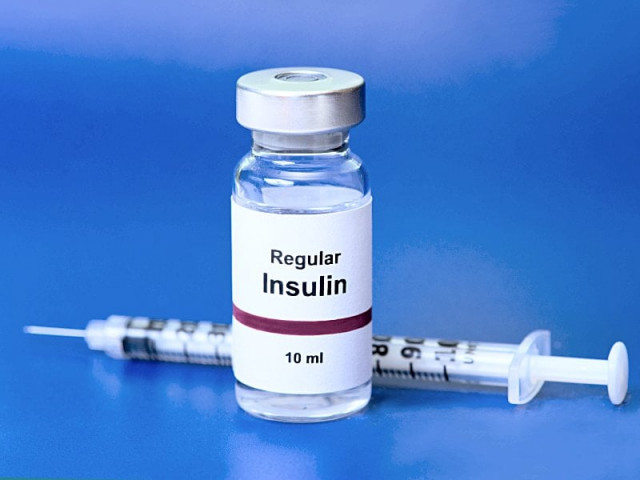Insulin shortage makes life miserable for diabetics
Hoarding of the drug by pharmacists to charge higher rates has further exacerbated the crisis

After the end of the nationwide Panadol shortage, now there is a similar crisis for those who rely on insulin to regulate blood sugar levels or diabetes.
According to health experts, those with type-1 and sometimes type-2 diabetes require insulin to manage their blood sugar levels and to prevent other complications related to the chronic health condition that affects how the body turns food into energy. Therefore, its unavailability at pharmacies has led to panic amongst millions of patients across the country.
“The blame for the nationwide shortage of insulin lies squarely with the government,” remarked Dr Azhar Chaudhary, head of the country’s medical association. “For those suffering from diabetes, insulin is like oxygen,” the Lahore-based health expert added.
The crisis, he said, could have been averted, had the government allowed pharmaceutical companies to open letters of credit (LCs) in time.
“This led to a shortage of raw materials and production of the drug decreased. Consequently, pharmacies have hoarding the remainder of the supply so that they can charge higher,” Dr Chaudhary explained.
While the government appears to be mum about the shortage, anxious patients and their caregivers have been running from pillar to post to arrange insulin, that too, at much higher rates than usual.
Javed Khan, a resident of Peshawar, is one of many struggling to procure insulin for his diabetic mother.
“It seems that the government is sleeping while these drug dealers are playing with the lives of people,” said an irate Khan, adding that some pharmacists were selling the drug in black and charging more than double.
Muhammad Nabi, a pharmacist based in Khyber Pakhtunkhwa’s (K-P) capital, confirming Khan’s allegations, said that it was true that some pharmacists were piling up on the drug and charging exorbitant rates for it. Nabi further said that it was apparent that the provincial drug regulatory authorities had no interest in taking action against such dealers.
While it remains to be seen if there will be a crackdown against hoarding and price gouging, a market survey carried out by the Express Tribune shows that prices of different brands of insulin, wherever they are available, have increased by up to 53%. For instance, Humulin which retailed for Rs 1,142 a few months ago now costs Rs 1,500. Similarly, Humulin 70, now costs Rs 1,300 instead of Rs 1,035; Mixtard 30 is retailing for Rs 1,400 instead of Rs 913; and Janumate’s price has increased from Rs 1,000 to Rs 1,400.
Atif Billo, President of the Wholesale Chemists Council of Pakistan, a resident of Karachi, when asked about the high prices across the country, said that it was the strength of the dollar which had resulted in upsurge in prices. “Apart from the shortage of raw materials, the inflation and the weak rupee have triggered an increase in prices of imported goods. Therefore, pharmacies do not have a choice but to charge higher,” said Billo.
Wasif Shaikh, owner of a medical store in Karachi, agreeing with Billo, said that prices of all drugs had increased manifold ever since June of this year. As for the shortages, Shaikh, like Billo, was of the view that the increase in demand, lack of raw materials, and a rupee in freefall had triggered an insulin shortage.
“If the current situation prevails, diabetics who require insulin will be at the risk of further complications like heart attacks and kidney failures,” said Professor Dr A.H. Amir, Project Director of the Insulin for Life programme started by the K-P government.
On the other hand, Director General Punjab Drug Control, Muhammad Sohail, was of the view that the worst of the crisis was over. “It is true that LCs were not opened in time and that led to a shortage but that issue has been resolved now. According to our reports, insulin is now readily available at government hospitals and pharmacies,” informed Sohail while talking to the Express Tribune.



















COMMENTS
Comments are moderated and generally will be posted if they are on-topic and not abusive.
For more information, please see our Comments FAQ